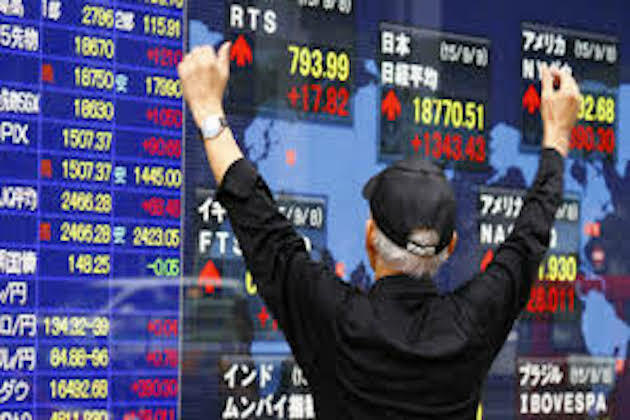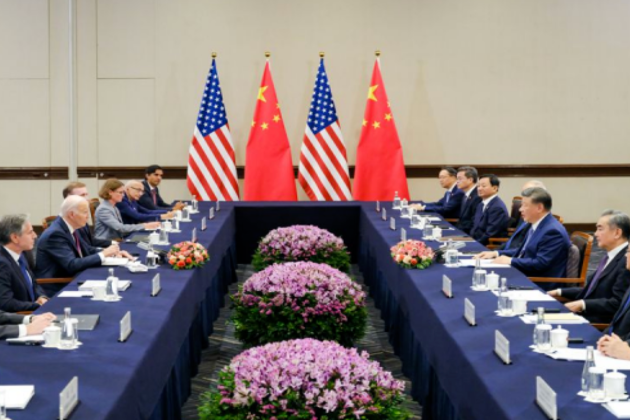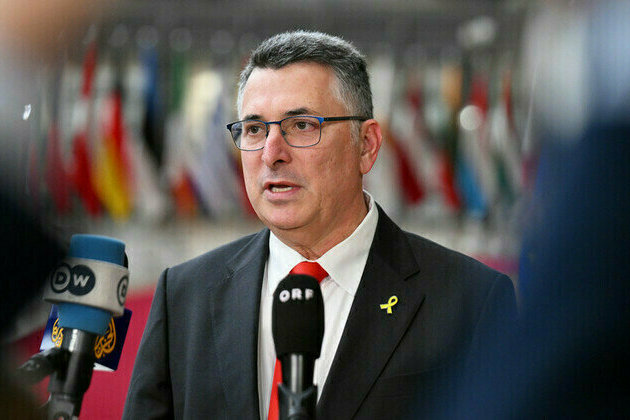How powerful sounds of protest amplify resistance - Podcast
The Conversation
24 Jun 2022, 04:08 GMT+10

When you think of a protest, one that fills the streets, do you remember the visuals of what you saw? Visually striking images are often circulated by news media - like the one we've used for this article.
But can you also close your eyes and remember the sounds that surrounded you?
For me, sound has always resonated - it's sometimes what I remember, long after the streets are empty and quiet again.
Maybe it's the sound of a chant "No Justice No Peace" or "I Can't Breathe" at a Black Lives Matter protest. Or a theatre shaking from feet stomping after a speech by a brown queer rights activist. I can still hear that. I also remember the sound of Toronto police horses clopping on concrete during the 1992 protest against police brutality.
Everyday sounds are important too. The normal sounds of a Saturday: music from a fruit stall, neighbours yelling "hey" to each other, the clattering of the Q train in Brooklyn. These sounds can define a neighbourhood. And if we don't pay attention to them, as life changes, sounds can disappear.
In today's episode of Don't Call Me Resilient, I speak with two people involved in sound studies who believe sound is an element of resistance. They explain why - in our hyper-visualized age of Instagram-perfect photos - sound is so compelling and why soundscapes can help to amplify voices of resistance.
Nimalan Yoganathan is a PhD candidate at Concordia University. He studies protest tactics and he looks at how different sound practitioners have contributed to anti-racist movements.
I also spoke with Norman W. Long, a born-and-raised resident of the south side of Chicago. Norman is a sound artist, designer and composer who works to document and record the everyday reality of his community. He has graduate degrees in landscape architecture from Cornell University and in fine arts from the San Francisco Art Institute.
Both our guests talk about how important it is to listen to the sounds around us as a way to critically engage with our communities, to help bridge our deep divides and to pay attention to the forces of power in our environment. They say anyone can learn to listen deeply, even children.
As Long invites both insiders and outsider to listen on guided soundwalks of his community, he starts with a short breathing exercise. He said:
This is a different kind of episode: instead of our usual interview style, we let the sound guide us. I encourage you to listen in and follow along with our conversation and playlist.
Soundscapes/Credits
- "Idle No More Protest," (2012) recorded by Paula Kirman at the West Edmonton Mall
- "Stay Alive" When Smoke Rises by Mustafa
- Ali by Mustafa
- "Black Space in Winter" (2021) Produced by Norman W. Long. Recorded as part of the We Series curated by Lia Kohl and Dierdre Hackabay. Bowls, Cymbals and electronics by Norman W. Long. Recorded at Marian R. Byrnes Park.
- Washington Park Mix 2016 Produced by Norman W. Long
- "N30: Live at the WTO Protest" (1999), produced by Christopher DeLaurenti
- "Fit The Description" (Ferguson, 9-13 August 2014), produced by Christopher DeLaurenti
- "Remixing the world, one sound at a time" on Cities and Memory (LA No KKK)
- "For and against Donald Trump (2017)" recorded by Aaron Rosenblum (on Cities and Memory Project)
- Thakira Jama'iya by Muqata'a
- Mbana Kantako from NPR and YouTube
- "Regent Park is Toronto's up-and-coming neighbourhood" in BlogTo
- "CBC Juno Awards"
- Marshawn Lynch clip from ESPN
ICMYI in The Conversation
- "Black Lives Matter movement uses creative tactics to confront systemic racism by Nimalan Yoganathan
- Voices, hearts and hands - how the powerful sounds of protest have changed over time by Lawrence English
- Hip-hop is the soundtrack to Black Lives Matter protests, continuing a tradition that dates back to the blues by Tyina Steptoe
Resources
- "Soundscapes of Resistance: Amplifying social justice activism and aural counterpublics through field recording-based sound practices" in Organised Sound by Nimalan Yoganathan
- Listening to Images by Tina M. Campt
- "Parsing Muqata'a's Personal, Potent Instrumental Hip-Hop" by Lewis Gordon
- "Pedagogies of hope" by Yasmin Jiwani
- "Sounds inside: prison, prisoners and acoustical agency" in Sound Studies by Tom Rice
- "Hearing Change in the Chocolate City: Soundwalking as Black Feminist Method" by Allie Martin
- "The Profound Silence of Marshawn Lynch" by Hua Hsu
- Jennifer Lynn Stoever: "Interview Series: Jennifer Stoever, The Sonic Color Line"
Follow and listen
You can listen to or follow Don't Call Me Resilient on Apple Podcasts, Google Podcasts, Spotify or wherever you listen to your favourite podcasts. We'd love to hear from you, including any ideas for future episodes. Join The Conversation on Twitter, Facebook, Instagram and TikTok and use #DontCallMeResilient.
Don't Call Me Resilient is produced and hosted by Vinita Srivastava. The co-producer on this episode is Lygia Navarro. Haley Lewis is a series co-producer and Vaishnavi Dandekar is an assistant producer. Jennifer Moroz is our consulting producer. Lisa Varano is our audience development editor and Scott White is the CEO of the Conversation Canada. Don't Call Me Resilient is a production of The Conversation Canada. This podcast was produced with a grant for Journalism Innovation from the Social Sciences and Humanities Research Council of Canada.
Transcript
Authors: Vinita Srivastava - Host + Producer, Don't Call Me Resilient | Senior Editor, Culture + Society | Nimalan Yoganathan - PhD candidate in Communication Studies, Concordia University | Norman W Long - Artist/Designer/Composer 
 Share
Share
 Tweet
Tweet
 Share
Share
 Flip
Flip
 Email
Email
Watch latest videos
Subscribe and Follow
Get a daily dose of Toronto Telegraph news through our daily email, its complimentary and keeps you fully up to date with world and business news as well.
News RELEASES
Publish news of your business, community or sports group, personnel appointments, major event and more by submitting a news release to Toronto Telegraph.
More InformationBusiness
SectionDe-escalations in India, Pakistan, China and U.S. fuel Asian stocks rally
SYDNEY, NSW, Australia - Stocks in Asia and the pacific have closed significantly higher following ceasefires in India-Pakistan hostilities,...
Toyota warns of 21% profit drop amid Trump tariffs, weak dollar
TOKYO, Japan: Toyota Motor Corp is bracing for a 21 percent decline in full-year profit, as the impact of President Donald Trump's...
Nordic, Baltic nations plan offline card payments amid rising risks
HELSINKI, Finland: In response to rising geopolitical risks, Finland, Sweden, Norway, Denmark, and Estonia are preparing to roll out...
Budget airlines struggle as big carriers gain in tough market
CHICAGO, Illinois: All U.S. airlines are feeling the impact of falling travel demand caused by President Trump's trade war. But low-cost...
AWS to invest $4 billion in first Chile data centers
SANTIAGO, Chile: Amazon Web Services (AWS) will invest US$4 billion to establish its first data centers in Chile, aiming to tap into...
US and China officials to hold key trade talks in Switzerland
WASHINGTON/BEIJING: U.S. Treasury Secretary Scott Bessent and lead trade negotiator Jamieson Greer are meeting China's top economic...
Canada
SectionKimberly-Clark to invest $2 billion in US manufacturing expansion
IRVING, Texas: Kimberly-Clark, the maker of Kleenex tissues and Huggies diapers, announced this week it will invest US$2 billion over...
Brazil names Carlo Ancelotti as new manager
Carlo Ancelotti looks on before the FIFA Intercontinental Cup Qatar 2024 Final match between Real Madrid and Mexico's CF Pachuca at...
Feeling anxious before surgery? Anxiety can harm healing but innovative mental health support could help
Feeling anxious before surgery is normal - but for many patients, it goes far beyond nerves. There is a growing body of research showing...
Saud bin Saqr receives Canadian Consul-General, organisers of RAK Terry Fox Run
RAS AL KHAIMAH, 12th May 2025 (WAM) -- H.H. Sheikh Saud bin Saqr Al Qasimi, Supreme Council Member and Ruler of Ras Al Khaimah, emphasised...
Israel issues warning over Palestine recognition
Any push for statehood rewards Hamas, Foreign Minister Gideon Saar has claimed after several nations signaled support Israeli Foreign...
'Elbows up' in Canada means sustainable resource development
Elbows up means many things today in Canada, including using the country's rich natural resources more effectively to support a strong,...













